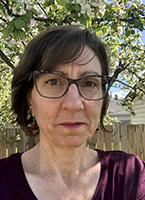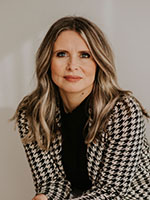IIQM Team
 Sara Dorow (Director)
Sara Dorow (Director)
I am Professor of Sociology (Faculty of Arts) at the U of A, where I have previously served as Chair of the Department of Sociology, Founding Director of the Community Service-Learning Program, and Associate Director of the Intersections of Gender signature area. My research seems to have unfolded in phases: a multi-sited ethnographic study of transnational adoption; then multi-method research in the northern Alberta oil sands region; and now two projects involving community-based research on housing and a multi-media exploration of work, respectively. I enjoy teaching qualitative methods at both the undergraduate and graduate levels.
 Gillian Lemermeyer (Associate Director)
Gillian Lemermeyer (Associate Director)
I am an Assistant Professor in the Faculty of Nursing at the U of A. The questions I explore in my research are situated in the relational encounters between nurses and other healthcare practitioners with the people in their care. I focus on themes of embodied ethics, the nurse's touch, and the ethics of artificial intelligence in healthcare. My teaching practice is in healthcare ethics and qualitative research methods.
Emily Friedrich (TQ Coordinator)
I have several years of communications, project management, and knowledge exchange experience at the University of Alberta, where I have supported an eclectic range of interdisciplinary research teams from family medicine to women's and gender studies to wildfire management. As event coordinator for Thinking Qualitatively: Time and Place, I am most looking forward to the opportunity to ground ourselves in where and when we are, even as we explore what that means in an online context.
 Baiyu Su (Administrative Assistant)
Baiyu Su (Administrative Assistant)
I hold a PhD in History (2018) and am currently pursuing a second PhD in Sociology at the University of Alberta. My early research examined the governance of marginalized groups in pre-1949 China. I have co-authored oral history books and peer-reviewed articles based on interdisciplinary qualitative work, and have published papers and delivered lectures on research methodology—particularly on applying the Kaozheng School’s approach, which combines archival analysis with interview data to generate critical insights. My current research focuses on migration, gender, and state-society relations.